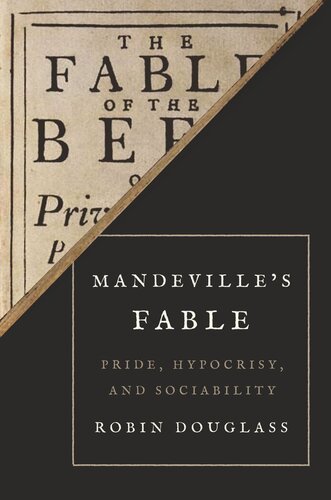

Most ebook files are in PDF format, so you can easily read them using various software such as Foxit Reader or directly on the Google Chrome browser.
Some ebook files are released by publishers in other formats such as .awz, .mobi, .epub, .fb2, etc. You may need to install specific software to read these formats on mobile/PC, such as Calibre.
Please read the tutorial at this link: https://ebookbell.com/faq
We offer FREE conversion to the popular formats you request; however, this may take some time. Therefore, right after payment, please email us, and we will try to provide the service as quickly as possible.
For some exceptional file formats or broken links (if any), please refrain from opening any disputes. Instead, email us first, and we will try to assist within a maximum of 6 hours.
EbookBell Team

5.0
90 reviewsWhy we should take Bernard Mandeville seriously as a philosopher
Bernard Mandeville’s The Fable of the Bees outraged its eighteenth-century audience by proclaiming that private vices lead to public prosperity. Today the work is best known as an early iteration of laissez-faire capitalism. In this book, Robin Douglass looks beyond the notoriety of Mandeville’s great work to reclaim its status as one of the most incisive philosophical studies of human nature and the origin of society in the Enlightenment era. Focusing on Mandeville’s moral, social and political ideas, Douglass offers a revelatory account of why we should take Mandeville seriously as a philosopher.
Douglass expertly reconstructs Mandeville’s theory of how self-centred individuals, who care for their reputation and social standing above all else, could live peacefully together in large societies. Pride and shame are the principal motives of human behaviour, on this account, with a large dose of hypocrisy and self-deception lying behind our moral practices. In his analysis, Douglass attends closely to the changes between different editions of the Fable; considers Mandeville’s arguments in light of objections and rival accounts from other eighteenth-century philosophers, including Shaftesbury, Hume and Smith; and draws on more recent findings from social psychology.
With this detailed and original reassessment of Mandeville’s philosophy, Douglass shows how The Fable of the Bees—by shining a light on the dark side of human nature—has the power to unsettle readers even today.